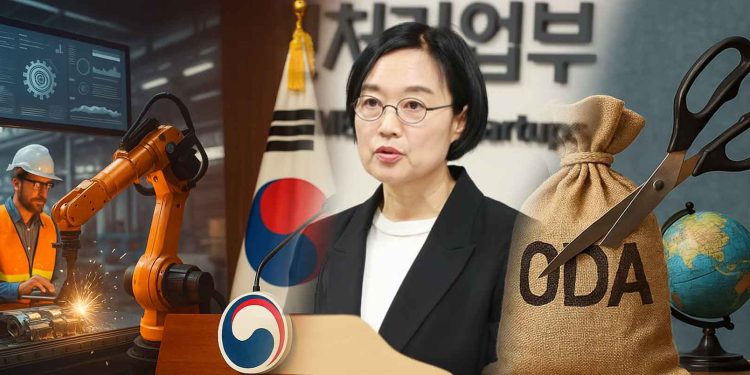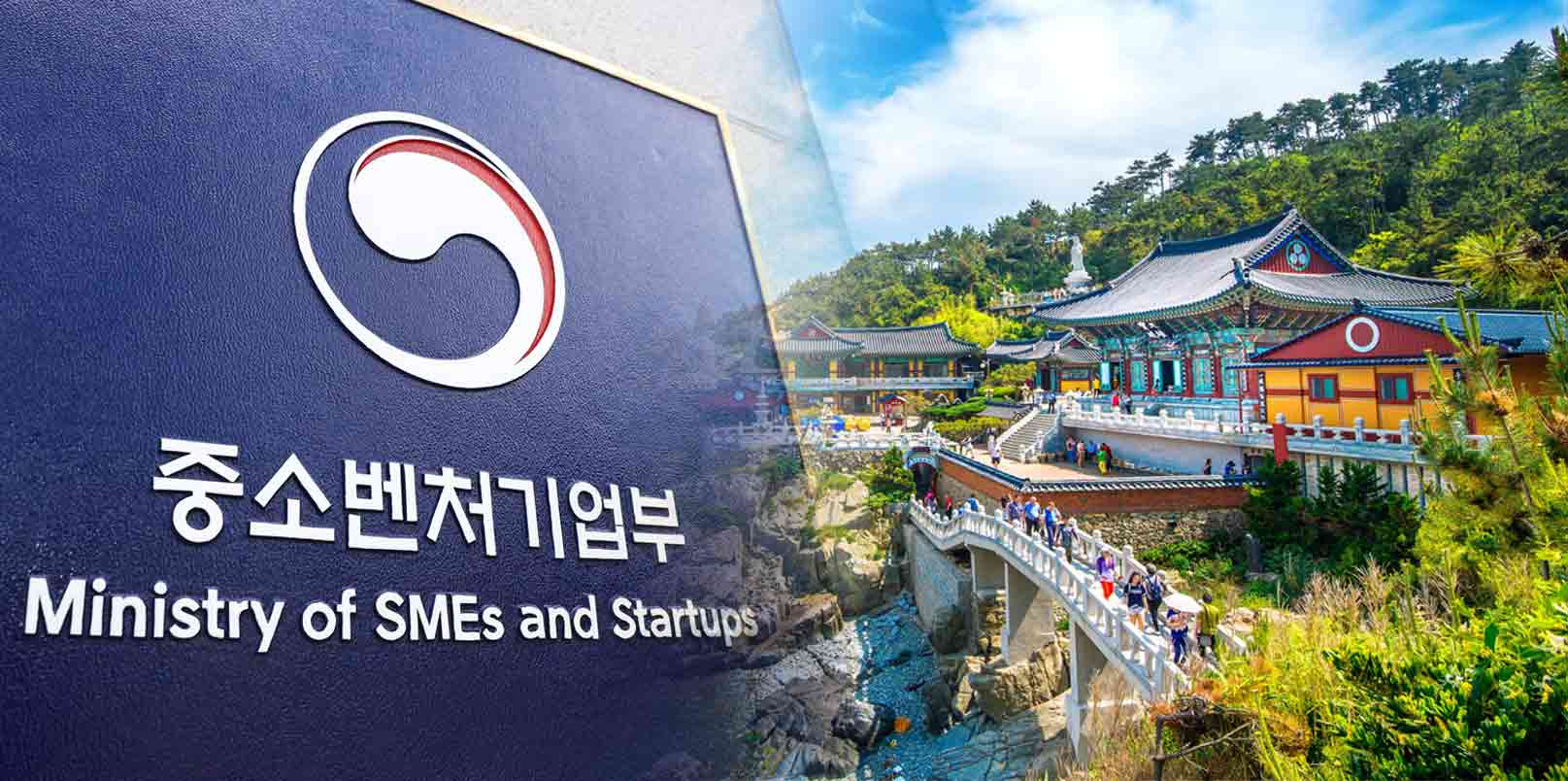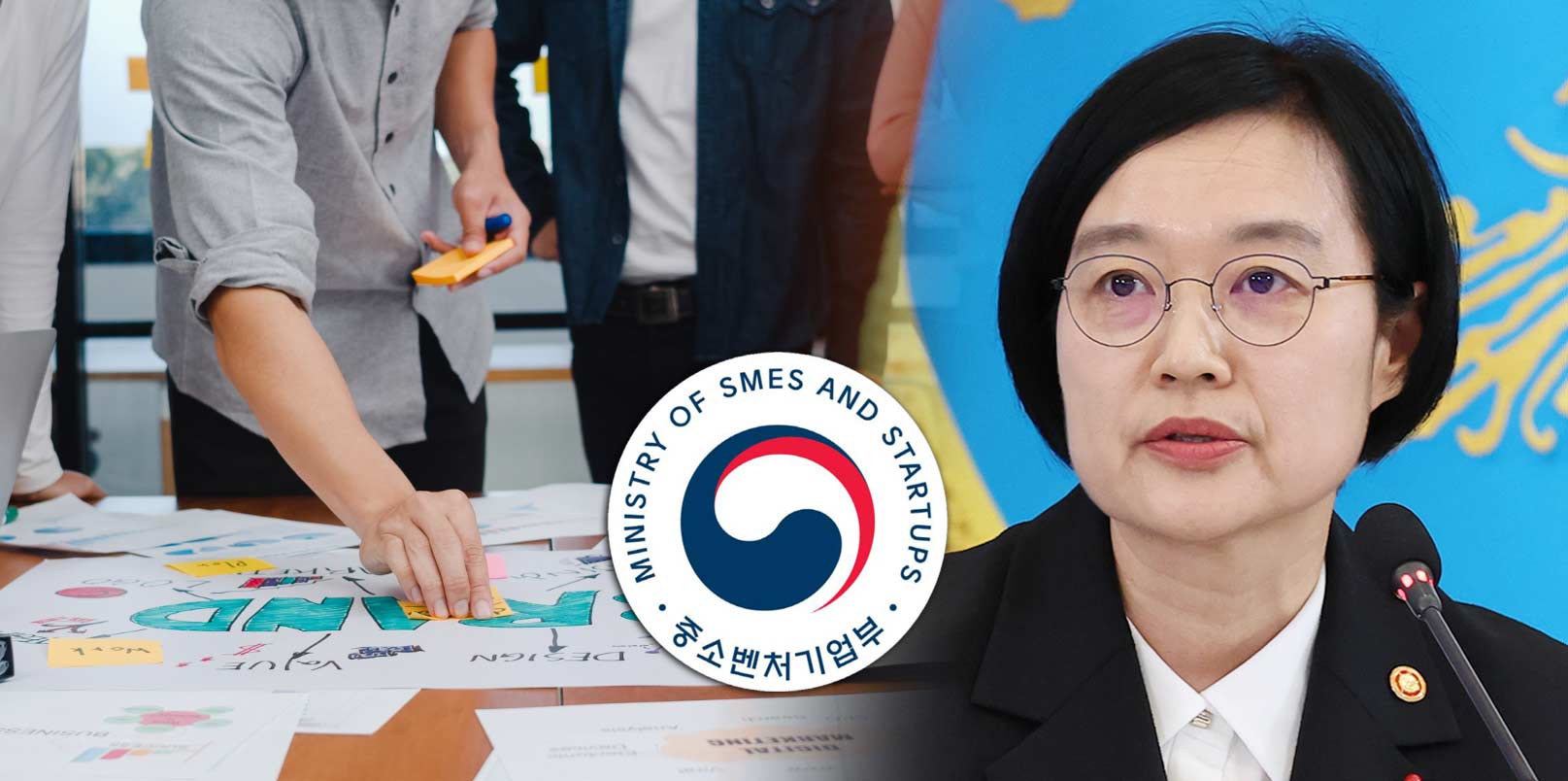Korea’s government is reshaping how it funds innovation and growth. The Ministry of SMEs and Startups (MSS) has expanded its 2026 budget for AI-enabled smart factories by nearly 85%, while sharply reducing funds for international development projects. The move highlights a fiscal pivot—one that prioritizes AI transformation and domestic manufacturing competitiveness over global outreach.
MSS Expands Smart Factory Budget as Global Aid Contracts
The Ministry of SMEs and Startups submitted its 2026 budget and fund operation plan to the National Assembly on November 12, outlining a clear shift in priorities.
The ICT-Converged Smart Factory Expansion Program has been allocated KRW 436.56 billion (USD 337 million), an 84.9% increase from the previous year’s KRW 236.07 billion.
The smart factory budget, which had declined from KRW 357.04 billion in 2022 to KRW 167.09 billion in 2023, began rising again in 2024 and now marks its largest allocation in five years. This increase positions smart manufacturing as one of the ministry’s most heavily supported programs for 2026.
In contrast, the Official Development Assistance (ODA) budget for SME cooperation abroad dropped 46.5%, falling from KRW 19.79 billion to KRW 10.59 billion. The ministry cited project completions in Laos and Vietnam and expenditure restructuring as reasons for the cut.
Remaining ODA efforts will focus on existing projects in Indonesia and Colombia, along with new initiatives for Vietnam’s smart factory development and Mongolia’s startup town project.
Smart Factory Budget Increase: Aligning with Korea’s AI Transformation Agenda
The 2026 budget expansion reflects continuity with Korea’s AI Transformation (AX) strategy unveiled in October 2025—a cross-ministerial initiative led by the MSS alongside the Ministry of Science and ICT (MSIT) and the Ministry of Trade, Industry and Energy (MOTIE).
In that plan, the government committed to accelerating industrial AI adoption, announcing an 83.6% increase in AX funding and an integrated framework to digitalize factories, strengthen AI education for SMEs, and foster AI-driven startup growth.
As reported in the earlier KTD feature, the policy represented a strategic blueprint for the nation’s transition toward AI autonomy.
This latest MSS budget now operationalizes that vision—translating policy into numbers. It shows how fiscal planning is being redirected to fuel domestic AI manufacturing and technology-led productivity gains, even as global aid programs are scaled back.
Lawmakers and Industry Leaders Push for AI Manufacturing Legislation
Democratic Party lawmaker Heo Sung-moo stressed that institutional backing must match the new investment scale:
“Since full-scale smart factory support will begin next year, the National Assembly should expedite the passage of the Smart Manufacturing Industry Promotion Act to strengthen legislative support for manufacturing AX.”
The ministry is pursuing this bill as a legal foundation for AI-based manufacturing infrastructure, part of its Smart Manufacturing Innovation 3.0 Policy unveiled in October. The framework aims to install 12,000 smart factories and nurture 500 AI-specialized manufacturing firms by 2030.
President Lee Jae-myung has consistently emphasized smart factory expansion as a national strategy for job creation and regional economic revitalization, describing AI-enabled manufacturing as the next growth engine for Korean industry.
Impact of Korea’s 2026 Budget Shift on Startups, SMEs, and Innovation Policy
The combination of budget expansion and ODA cuts signals a deliberate fiscal concentration on domestic competitiveness. Korea’s government is doubling down on industrial AI transformation, prioritizing the modernization of small and mid-sized manufacturers over global cooperation programs.
This move also reflects a larger trend across Asia-Pacific economies, where governments are redirecting innovation budgets toward deep-tech resilience and productivity growth amid tightening global conditions.
Now, for South Korea, the emphasis on smart factories and AI ventures aligns with its broader goal of becoming a Top Four Global Venture Nation by 2030.
By reallocating resources inward, the MSS aims to accelerate local innovation ecosystems—linking AI startups, manufacturing SMEs, and regional industrial hubs through shared digital infrastructure and education programs. At the same time, scaling back ODA commitments reflects a pragmatic response to fiscal constraints and shifting geopolitical priorities.
Korea’s Fiscal Pivot Toward AI Competitiveness
While it may look like a simple spending adjustment, the 2026 MSS budget illustrates how Korea’s industrial policy is evolving from digitalization to AI-driven autonomy. The government is moving decisively toward a model where manufacturing innovation, startup acceleration, and data infrastructure are financed through domestic reinvestment.
If successful, this approach could not only modernize Korea’s production base but also position its SMEs as global suppliers of intelligent manufacturing solutions—extending the country’s AI leadership beyond software and into applied industry.
As budget debates proceed in the National Assembly, attention will focus on whether this AI-first fiscal strategy can deliver measurable productivity gains while sustaining Korea’s long-term international partnerships in innovation and development.
– Stay Ahead in Korea’s Startup Scene –
Get real-time insights, funding updates, and policy shifts shaping Korea’s innovation ecosystem.
➡️ Follow KoreaTechDesk on LinkedIn, X (Twitter), Threads, Bluesky, Telegram, Facebook, and WhatsApp Channel.






